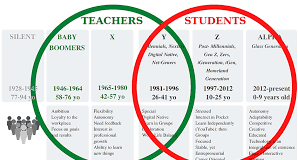When the wink video of actress Priya Prakash Varrier went viral, all of us for once wished if it could be our luck as well to become popular within such short interval just like her.
Everyone of us for once in this lifetime has wanted to be famous, to be known, to be heard, to be loved, to be respected, to be powerful enough and to live in the hearts of the people for long. But only a very few have managed to achieve that feat. There were no coachings, courses, study books or institutions that could possibly teach the humans to achieve all of the above.
That is exactly why analysts of whether it be of social media or that of the business circle are unable to fixedly point out the rules to be people’s choice.
Nevertheless, we all have the fortune of going through “How to Win Friends and Influence People”, by Dale Carnegie. A book that is a timeless masterpiece, a must-having treasure to lead in this twenty first century. The book details methods in the form of personal experiences, research, interviews, applied techniques, lectures of the author and stories of his students. But the catch is that the main points of all these are compiled in the book into four different parts (chapters) with maximum nine ways under them to make it easy for the reader to recall the lesson while facing the same in real life.
One of the most important principle provided in part one of the book that deals with fundamental techniques in handling people is titled “If You Want to Gather Honey, Don’t Kick Over the Beehive”. The author has narrated a true incident in order to arrive at this principle. It is the once famous quarrel between Theodore Roosevelt and President Taft, a quarrel that split the Republican Party of the US. The facts of the quarrel are as follows: when Theodore Roosevelt stepped out as the president, he supported William Howard Taft as the next President and went vacationing to Africa. Upon his return, he openly criticized Taft for his conservatism and tried to secure the next nomination for himself. Following such rifts and unpleasantness, the election was won by Woodrow Wilson and the Republican Party met the most disastrous defeat it ever knew of. Through all of this, Mr. Taft stated that he doesn’t see how he could have done any different from what he already has.
The reason of pinpointing this episode was that Theodore Roosevelt’s criticism didn’t make Taft realize that he was wrong rather he strived to defend himself against it.
Humans are creatures of emotions, not logic. While dealing with humans, it is pertinent to know that humans find their pride as the most precious and grow resentment in them when their pride as the most precious and grow resentment in them when their sense of importance is hampered. Hence, the next time we are about to criticize someone, we must remember the above as an example and understand that the person we are going to condemn will only try to justify his/her actions and instead might even blame us.
This Principle basically states that we shouldn’t complain, criticize or condemn people all our life rather try to stick to tolerance, sympathy and kindness instead, if we want better results or relations.
This is beautifully explained by an excerpt from the book “Go himself, sir, does not propose to judge man until the end of his days. Why should you and I?”
Another method that is worthy of knowledge is titled “The Big Secret of Dealing with People” . When we think of dealing with people, we are aware of the fact that it shall be in regards to day to day activities where we and the others carry out our own work. And when it comes to work, the difficult task is to get someone to do something for us with utmost sincerity and commitment. There must have been instances in our lives when we would have felt that we wish we could force the person in front of us to do as we say. But force isn’t the driving fuel of life rather the one that might influence others to get our work done is actually them wanting to do it which can happen through honest appreciation.
William James once rightfully said that the deepest desire in human nature is the craving to be appreciated. Let us take a common example to understand it better.
If we take a look at a dog show where competitions among pets are held, we can see the owner of the winners feeling a sense of accomplishment and success whereas the winning dogs themselves have no pride regarding their win. This particular example sets out the psychological theory that humans have a secret deepest desire to feel important. And this desire is so rooted that most times people go insane in it.
The author in this book has penned down one such incident where he interviews a top notch psychologist. The psychologist gave insight into the life of one of his patients. The psychologist said that his patient who has been recently admitted is married and wanted her husband to love her and have children. She also wanted a high place in the society. And now that she is getting treated in the hospital, she tells the psychologist every day that she has divorced her husband and then married into English aristocracy so now her servants have to address her as Lady Smith and that she gave birth last night which in reality is all in her imagination. While we might think of it as a tragic story but the psychologist wished that the patient stays in her imagination where she is much more happier because in reality, her husband has never loved her and she had no servants or children to feel loved which drove her into insanity.
Then imagine what a strong effect our words of honest appreciation would have on people, something that all humans so deeply desire.
An astounding experience was shared to the author by his student during one of his lectures which the author has recorded in this book. His student described that one day his wife asked him to say 6 things he would want to change about her to which he replied that he shall inform her the same after thinking in the next morning. And the next day he sent his wife 6 roses from a florist with a note that read that he couldn’t think of 6 things that he would like to change of her and that he loves her the way she is. That very evening he was welcomed by his wife at the door while he returned from the office with happy tears in his wife’s eyes because of his appreciation.
The idea of the importance of emotional intelligence and positivity for a happy and fulfilled life are purposefully laid down in this Dale Carnegie’s book for people of all walks of life. But before Dale Carnegie wrote this book, he had founded his own school which Warren Buffett, a billionaire and investment banker credited and swore by for his success.
Dale Carnegie’s book “How to Win Friends and Influence People” has inscribed few other brilliant principles which include remembering people’s names because a person’s name is to that person the most important sound. Another of his rule advices that we should smile and believe that we are happy because positive thinking cultivates good results. The author in his book has asked the people to avoid arguments and to start being a good listener while encouraging others to talk about themselves. The author has showcased the employer-employee relationship as a sacred bond of loyalty and dedication. He has tactfully taught that we should make sure that the person listening to us has started to believe that we are genuinely interested in them and that the idea is entirely theirs in order to win people and get people to like us. His methods are believed to change people without making them feel offended. And hence, many readers have actually reviewed after applying these principles to their life and have called it to be one of the self- help classics ruling for more than 75 years of it being published.
But this again pushes our curiosity more to the edge to enlighten ourselves as to how and why the author decided to gift us this gem of knowledge.
Dale Carnegie who wrote this book which turned out to be one of the best-selling books of all time, was born in 1888 in Maryville. His parents were farmers and economically weaker. Dale didn’t feel much interest in farm work and had planned to become a teacher at the age of sixteen. In his university days, he didn’t have enough money for buying uniform and didn’t have any luck with women as well. Thus he decided to join the school’s literary society and failed in his first debate competition. This started his obsession to recite speeches which won him the champion position in the next competition. Dale then went on to become a salesman and had saved enough money to enroll into a drama school. He started taking public-speaking classes at the Y.M.C.A. so that he could be financially sound until it was time to bid goodbye to his theatre career. Thousands of students joined his lecture class on “Effective Speaking and Human Relations” enabling him a tag of a reputed teacher. This is when he was considered to be a magician who could turn an awkward person into a charmer. In 1934, an editor from Simon & Schuster encouraged him to write a book on “the art of getting along with people” and hence we are all now blessed to have “How to win Friends and Influence People” among us all which has been reported to have been purchased more than 30 million times since its publication in 1936 and so has the school founded by him for this purpose garnered immense love in over 90 countries.
And thus it wouldn’t be wrong to conclude that this book has been an asset to the human civilization in the recent years and is probably one of the best roadmaps to human relations and its understanding! Therefore it’s a must read for younger generations.










